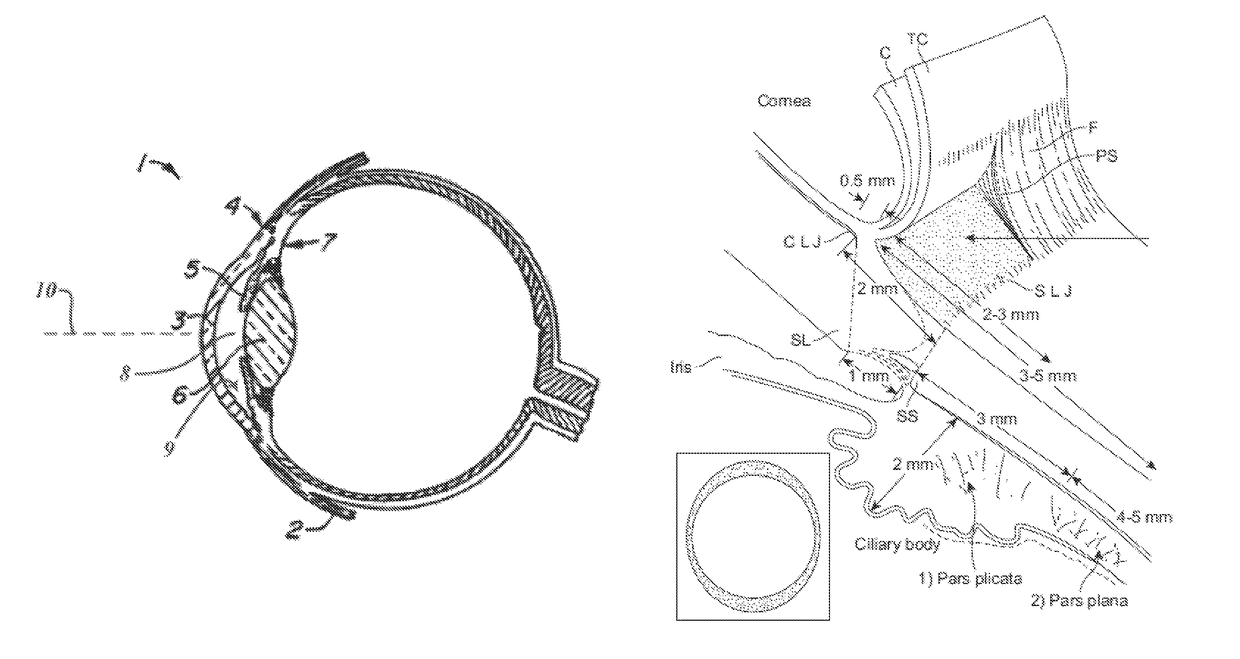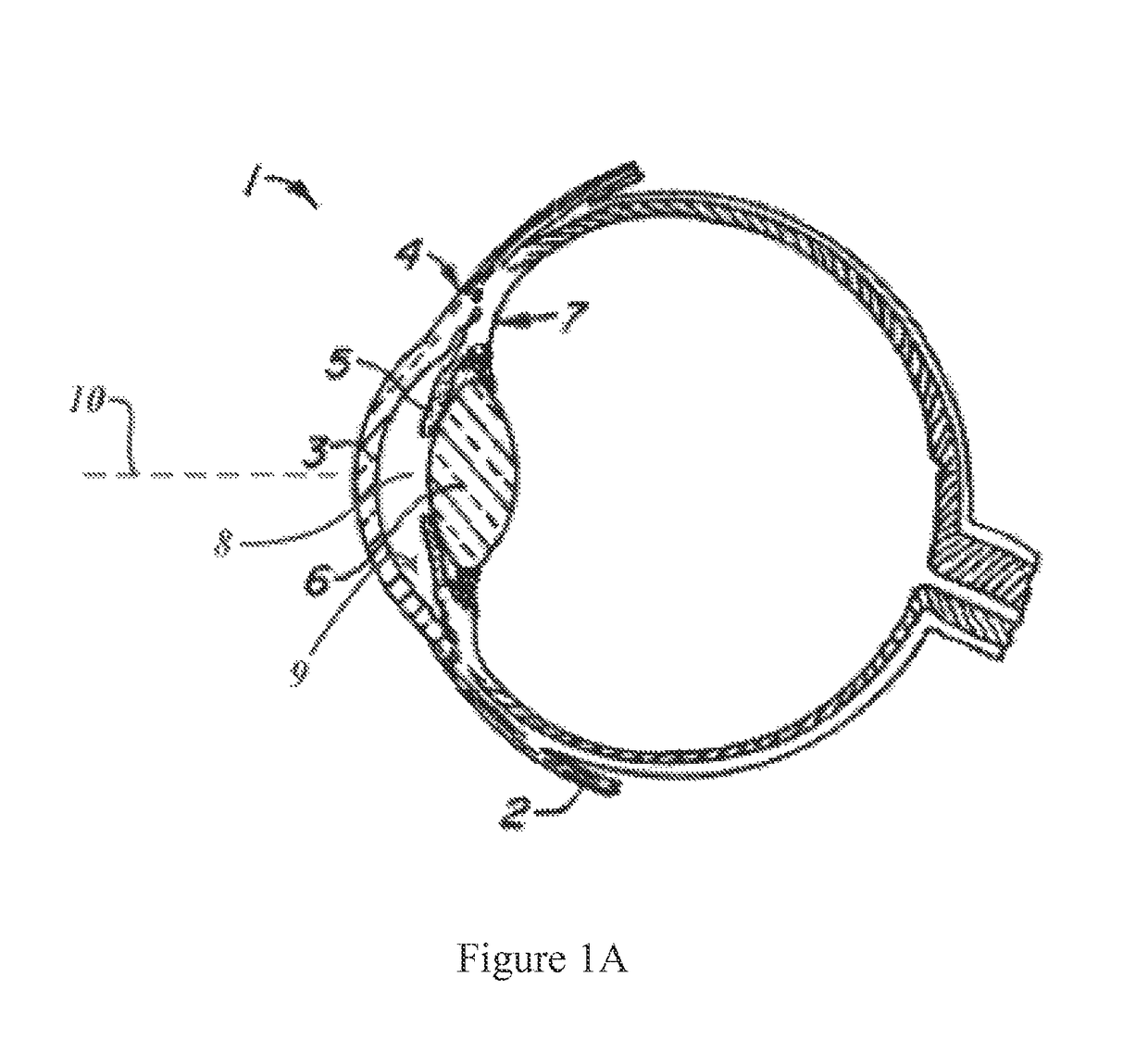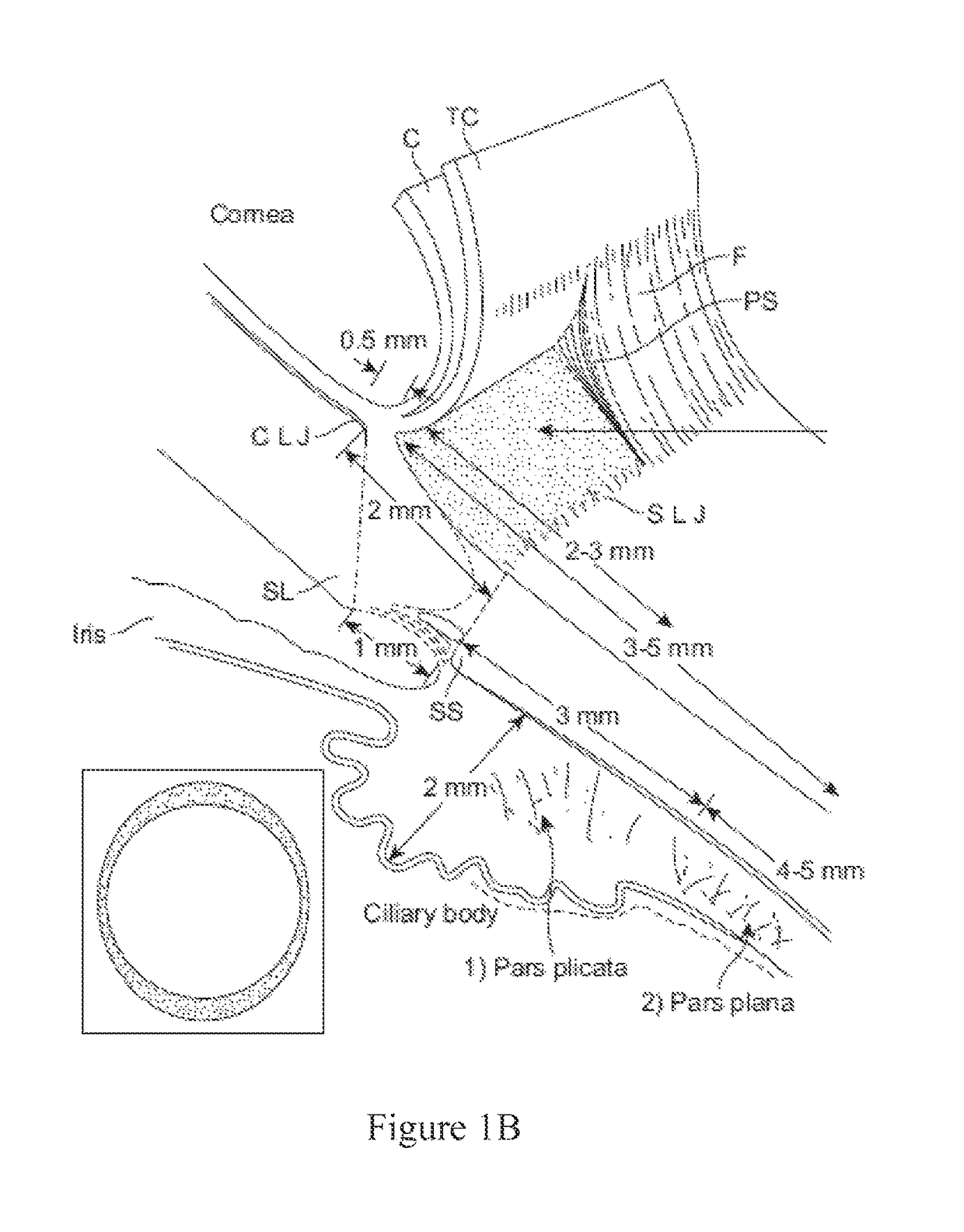Convex contact probe for the delivery of laser energy
a contact probe and laser energy technology, applied in the field of medical devices, systems and methods, can solve the problems of long-term reduction, and achieve the effect of avoiding permanent thermal damage to the pars plicata and increasing the uveoscleral
- Summary
- Abstract
- Description
- Claims
- Application Information
AI Technical Summary
Benefits of technology
Problems solved by technology
Method used
Image
Examples
experiment a
[0105]An initial study using a handpiece with a contact probe similar to those described above was conducted at the National University Hospital in Singapore. In the study, treatment procedures similar to those described above were conducted on a number of glaucomatous eyes. This initial study tracks glaucomatous eyes for about 6 months, the treated eyes being treated with the aforementioned handpiece and a treatment procedure using pulsed laser energy.
[0106]Patients with advanced glaucoma refractory to maximum tolerated medical and surgical treatment and a visual acuity of worse than 6 / 60 were included in the study. Patients with recent eye surgery within 3 months of enrollment, active ocular inflammation or inability to give informed consent were excluded.
[0107]The procedure was performed by a single surgeon to patients under local anesthesia. The contact probe was designed for accurate positioning of a fiber optic at 3.0 mm behind the limbus of the eye.
[0108]The laser settings we...
experiment b
[0114]A similar study using a handpiece with a contact probe similar to those described above was conducted also at the National University Hospital in Singapore. In the study, treatment procedures using pulsed laser energy similar to those described above were conducted on a number of glaucomatous eyes. This study tracks the treated eyes for up to 18 months.
[0115]The MicroPulse™ procedure was performed by a single surgeon in the outpatient setting. Regional anesthesia with peribulbar or retrobulbar injection of 2% lidocaine was given prior to the procedure. Scleral transillumination was used to identify the position of the ciliary body as well as any areas of thinning. A diode laser emitting ball-lens tip contact probe, which is similar to those described above, was applied axially at the limbus. This probe housed a quartz fiberoptic of 600 μm in diameter. Its end protrudes 0.7 mm from the handpiece. The probe was specifically designed to allow positioning of the fiberoptic at 3.0 ...
PUM
 Login to View More
Login to View More Abstract
Description
Claims
Application Information
 Login to View More
Login to View More - R&D
- Intellectual Property
- Life Sciences
- Materials
- Tech Scout
- Unparalleled Data Quality
- Higher Quality Content
- 60% Fewer Hallucinations
Browse by: Latest US Patents, China's latest patents, Technical Efficacy Thesaurus, Application Domain, Technology Topic, Popular Technical Reports.
© 2025 PatSnap. All rights reserved.Legal|Privacy policy|Modern Slavery Act Transparency Statement|Sitemap|About US| Contact US: help@patsnap.com



